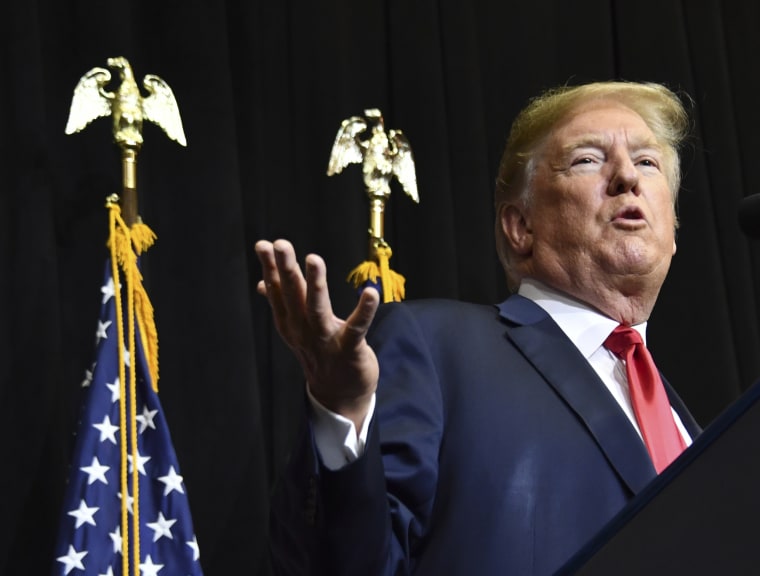Presidents cannot change libel laws. And yet that is exactly what President Donald Trump has proposed, over and over again. When faced with criticism by the media, Trump’s first impulse is to tighten a set of laws he has no control over and attempt to chill that critical speech. Investigative journalist Bob Woodward’s book “Fear,” officially released on Sept. 11, is the latest example of a critique that has incited the president’s wrath.
Woodward, a Pulitzer Prize-winning journalist, paints a rather disastrous picture of the Trump administration in his latest book. Trump’s responses so far to Woodward's reporting dovetail almost exactly with his reaction to the publication of another book, “The Fire and the Fury” by Michael Wolff, which also depicted a deeply unflattering portrait of the Trump administration.
Variously, Trump has described our country’s libel laws as a “sham and a disgrace.” On the campaign trail, then-candidate Trump characterized these laws as “impotent.” Trump’s repeated insistence that libel laws need to be changed does not reflect reality or current legal precedent. But it does exemplify several key themes of Trump’s candidacy and presidency.
First, a quick primer. Libel is essentially a written form of defamation. Defamation is a civil cause of action which protects people from false statements of fact (meaning the statement is a factual assertion, not an opinion) that harm their reputations or cause another similar injury like public ridicule or hatred. Someone suing based on defamation must show that the false statement was made either with negligence or with actual malice.
To prove someone has defamed a private individual, one must show that the person making the statement should have known that the statement was false, meaning the person was negligent about the falsity of the statement. To prove defamation against a public figure, however, the person making the statement must either have known it was false or have a “reckless disregard” for the falsity of the statement, meaning the person had actual malice about the falsity of the statement. This requires proving more than just that the person making the statement should have known it was false. Hence if you are a public figure, like the president of the United States, it will be harder for you to successfully sue for defamation.
Defamation laws are most commonly used against members of the media, so it makes sense that Trump in particular would gravitate toward them. As both a presidential candidate and sitting commander-in-chief, Trump has repeatedly derided the media and treated it with contempt and disdain. In a tweet he later deleted, Trump described NBC News, the New York Times, CNN, ABC and CBS as “the enemy of the American people.” Indeed, Trump has continued to use the word “enemy” to describe the press throughout his presidency.
The real purpose of criticizing the media, calling it “Fake News” or the “enemy,” is to make Americans lose faith in its ability to serve as a public watchdog. Once we fail to trust the media, the hope is that we will look directly to the government, and in this case, directly to the White House, for our information. Undermining a free press, in this way, can lead ultimately to autocratic rule.
Defamation laws are also state laws, and as such are under the control of state lawmakers and judges — although little tweaking happens at this level. The federal government only gets involved when one of these laws may violate the federal Constitution. Indeed, the president's best opportunity to affect our nation’s libel laws would be to appoint Supreme Court justices willing to overturn decades of cases concluding that the media enjoys strong First Amendment protection, even in the fact of defamation suits. There is no indication that either Justice Neil Gorsuch or Judge Brett Kavanaugh would be inclined to do so.
The real purpose of criticizing the media, calling it “Fake News” or the “enemy,” is to make Americans lose faith in its ability to serve as a public watchdog.
It’s likely that Trump’s ultimate goal is simply to silence speech that is critical of him, whether or not it violates any laws. Trump has a long pattern of unsuccessfully suing or threatening to sue those critical of him. FiveThirtyEight compiled a quick list of 20 different times Trump threatened lawsuits during his 2016 campaign alone. Further, Trump knows that even if his lawsuits aren’t successful, the resources needed to defend against them may be enough to make other authors or journalists think twice before hitting publish.
Of course, the irony here is that while Trump has complained bitterly about the false or fictitious statements made against him, he himself has made more than 2,000 false or misleading statements in just under one year.
In the end, Trump’s calls to tighten libel laws sound like the rallying cries of a leader seeking to weaken the First Amendment and the media. He can’t do much about legal precedent, but that doesn’t mean his statements won’t have a potentially chilly effect on speech.

